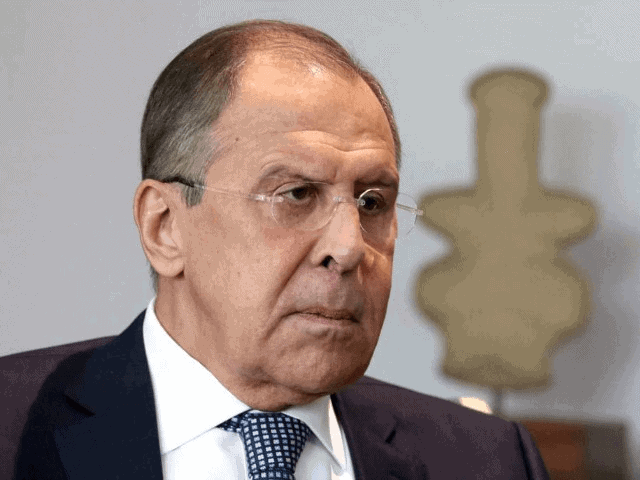After Defeat in Libya, Russians Say They ‘Welcome’ U.S. Involvement

Russian Foreign Minister Sergey Lavrov encouraged the U.S. to use its “influence” to support efforts toward a ceasefire in Libya on Wednesday, Russia’s state-run broadcaster RT reported.
“Any constructive assistance can only be welcomed,” Lavrov told reporters when asked what he thought of Turkish Foreign Minister Mevlut Cavusoglu’s statement last week that the U.S. should play “a more active role” in resolving the power struggle in Libya.
“If the U.S. can use its influence in the Libyan conflict to support the efforts of Russia and other external players who are in favor of an immediate ceasefire, I think it would be very, very positive,” Lavrov said.
Libya has been in an ongoing state of turmoil since a 2011 NATO-backed revolt ousted dictator Muammar Qaddafi, after which rival factions began battling for control of the North African nation in a seemingly perpetual power struggle that continues today.
In April 2019, rebel leader Khalifa Haftar and his forces began a siege on the capital, Tripoli, in an effort to depose the U.N.-backed government of Libya, known as the Government of National Accord (GNA), established there in 2015. Last month, Haftar and his Libyan National Army (LNA) were forced to retreat from the capital in the face of increased military advances from GNA-allied forces, largely supported by Turkey.
Libya’s current conflict is viewed by many as a proxy war between Russia, the LNA’s main supporter, and Turkey, the GNA’s biggest backer. In addition to Russia, Syria, Egypt, and the United Arab Emirates throw their weight behind Haftar and his LNA forces. The U.N.-backed GNA is additionally reinforced by Turkish-supported Syrian militias.
The appeal for U.S. assistance in the Libyan conflict by Russia’s foreign minister on Wednesday follows shortly after Lavrov and Russia’s defense minister on Sunday canceled a planned visit to Turkey to try to negotiate a ceasefire deal in Libya. Lavrov has previously eschewed the notion of Western involvement in Libya, leading some observers to interpret his sudden request for Washington’s help in the conflict as out of character and an indication that Russia senses the tide turning in Libya toward a GNA victory.
In a phone call last week, Turkish President Recep Tayyip Erdogan and U.S. President Donald Trump reportedly agreed to cooperate to foster peace in Libya, according to Turkey’s Communications Directorate, which issued a statement confirming the call on June 8. “The two leaders agreed to continue close cooperation to promote Libya’s peace and stability,” according to the statement.
Photo: Yiannis Kourtoglou, via AP











